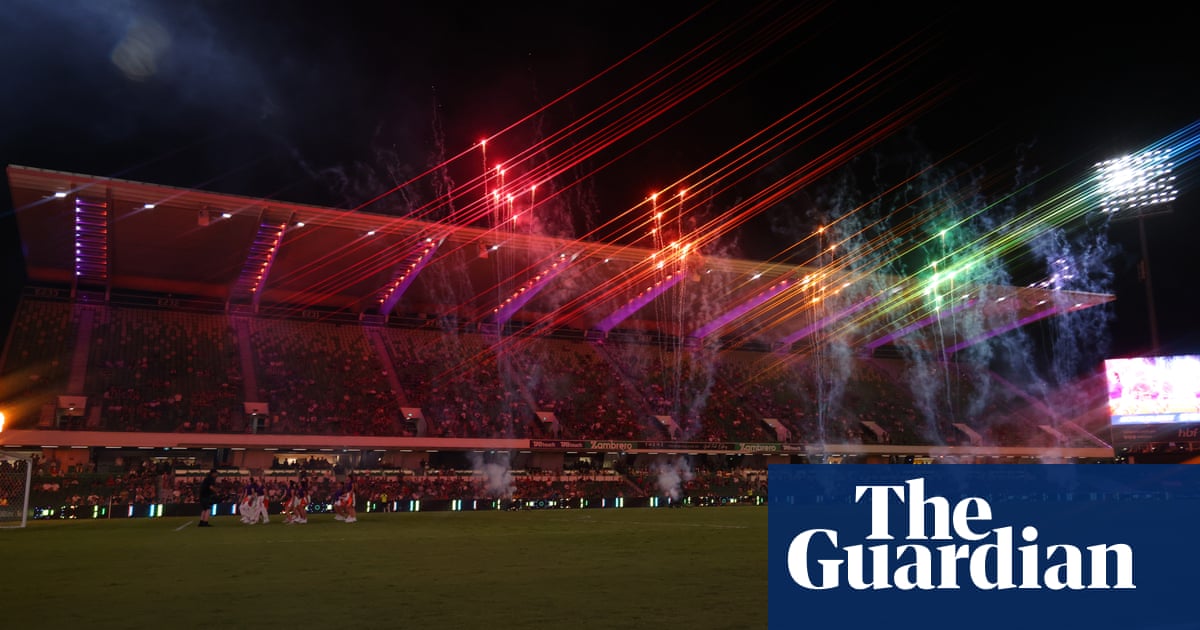
Professional Footballers Australia, the players’ union, has gone public with concerns about the direction of the A-Leagues and the management of the domestic competitions by operator APL, shattering the private protocols usually obeyed by football’s key stakeholders.
The criticism follows several contentious decisions from headquarters such as the now-reversed sale of the grand final to New South Wales, pushing ahead with a Canberra expansion team despite a short lead-in, the inability to find an owner for the Newcastle Jets and recent layoffs at head office.
PFA co-chief executive Beau Busch said the players do not want to be constrained by decisions they have no influence over. “The players’ objective has been a genuine partnership with the clubs,” he said. “The current model is not delivering that, and the industry has suffered as a result.”
The A-Leagues split from Football Australia in 2020 and are now governed by the APL, which is made up of club owners. The players have only limited rights under the arrangement, and expansion can go ahead without their input.
An Auckland team will join the competition next season and the APL still intends for a club from Canberra to join them, although that would mean playing a first competitive fixture just eight months from inception.
Busch’s co-CEO, Kate Gill, said decision-making by the APL over the past three years had been “mixed” and missteps had affected players, fans and other stakeholders.
“The players worked constructively with the APL to navigate the pandemic and have been waiting to see how the new model performs as crowds return,” she said. “They have done their part on the pitch, but they are concerned the current dynamic is not maximising the potential of the game or their careers and livelihoods.”
The APL declined to comment on the PFA’s grievances.
The APL and PFA, together with FA, work regularly behind closed doors, and the PFA’s decision to publicise their concerns highlights the level of frustration felt by players.
Gill said the problems stem from the unbundling process, when the PFA was excluded from the final stages of the negotiation. “Ultimately, FA and the APL agreed a governance model that was fundamentally different to the one advocated by the players,” she said.
FA declined to address issues around the unbundling and the process when approached by Guardian Australia. An FA spokesperson said: “The terms of this agreement were designed to promote the long-term success and sustainability of professional football in Australia.”
The separation was the result of years of negotiations with football’s many stakeholders in Australia, largely in a forum called the New Leagues Working Group.
That group recommended in 2019 that all parties work together on detailed negotiations for the new leagues, but ultimately only FA and the Australian Professional Football Clubs Association (the precursor to APL) negotiated the separation agreement.
The APFCA’s vision for the new entity was set out in the Blueprint for an Independent Future, released five years ago this week, and included a section titled “A Transparent Approach to Expansion”.
It stated: “What will be critical to the success of any expansion is the input and cooperation of the PFA in order to ensure that the expansion of the professional playing group within the league is optimally achieved.”
Gill said there were issues in the A-Leagues under the current governance model.
“Clubs or owners can be aggrieved at the league, but the league is accountable to, and has been governed by, the same people,” Gill said. “The grand final decision [to sell the rights to NSW] also showed that the current checks and balances can fail to identify what is in the game’s best interests.”
The 2019 blueprint document also identified a “need for financial transparency” in the proposed entity.
Yet even as concerns mount in the wake of layoffs, the APL claims it is not obliged to publicly report its financials because it operates under a trust structure.
Despite the PFA’s concerns over some APL decisions, Gill said she was “encouraged” by the APL announcing a new owner for Perth Glory on Friday, Ross Pelligra.
“That period of transition to new owners has been incredibly challenging for the players,” Gill said. “But hopefully there’s a new opportunity to rebuild the club from here.”
The deal for the club, for a reported $1, does not include any unit holdings in the league’s trust.












